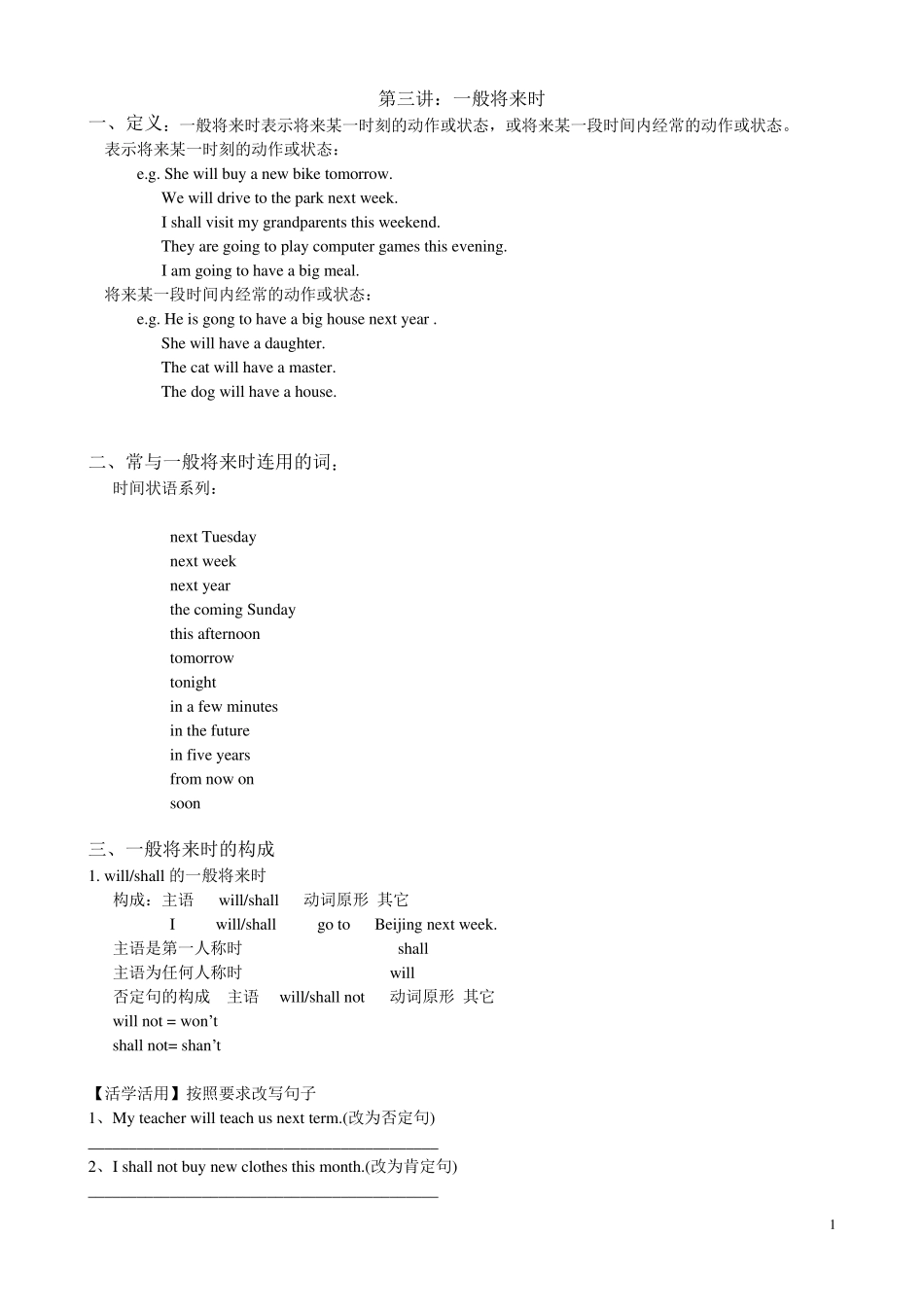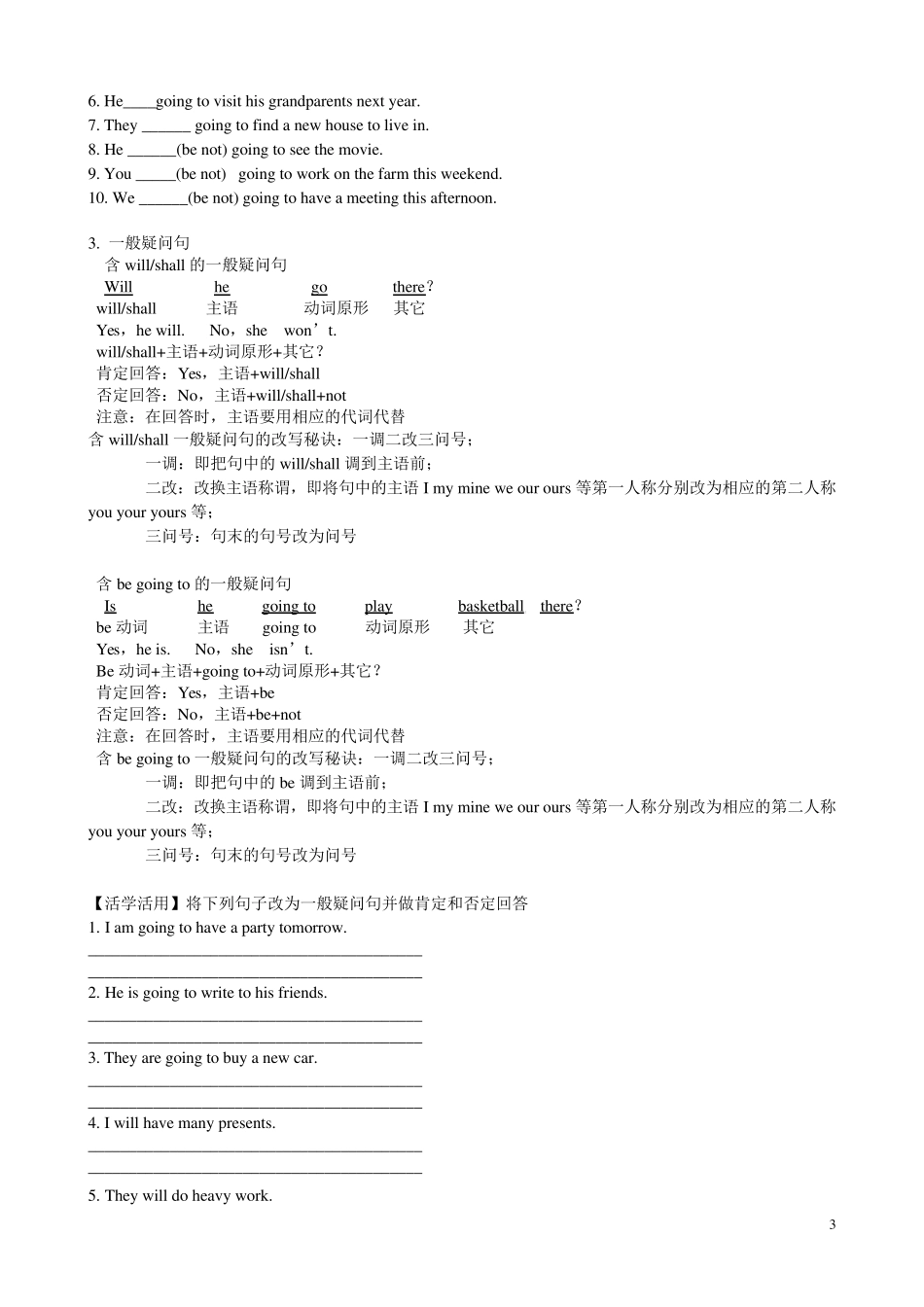1 第三讲:一般将来时 一、定义:一般将来时表示将来某一时刻的动作或状态,或将来某一段时间内经常的动作或状态。 1.表示将来某一时刻的动作或状态: e.g. She will buy a new bike tomorrow. We will drive to the park next week. I shall visit my grandparents this weekend. They are going to play computer games this evening. I am going to have a big meal. 2.将来某一段时间内经常的动作或状态: e.g. He is gong to have a big house next year . She will have a daughter. The cat will have a master. The dog will have a house. 二、常与一般将来时连用的词: 1. 时间状语系列: next Tuesday next week next year the coming Sunday this afternoon tomorrow tonight in a few minutes in the future in five years from now on soon 三、一般将来时的构成 1. will/shall 的一般将来时 构成:主语 + will/shall + 动词原形+其它 I will/shall go to Beijing next week. 主语是第一人称时 ----- shall 主语为任何人称时 ----- will 否定句的构成: 主语 + will/shall not + 动词原形+其它 will not = won’t shall not= shan’t 【活学活用】按照要求改写句子 1、My teacher will teach us next term.(改为否定句) ___________________________________________ 2、I shall not buy new clothes this month.(改为肯定句) ___________________________________________ 2 3、She is playing computer games.(改为将来时) ___________________________________________ 4、We shan't take part in the football match.(改为肯定句) ___________________________________________ 5、I visit my grandparents every weekend.((改为将来时) ___________________________________________ 2. be going to 的一般将来时 构成:主语 + be going to + 动词原形 + 其他 She is going to play basketball this afternoon. 主语是”I” 时 ----- am 主语为单数时 ----- is 主语为复数及 you 时 ----- are 否定句的构成: 主语 + be not going to + 动词原形 + 其他 She is not going to play ...


